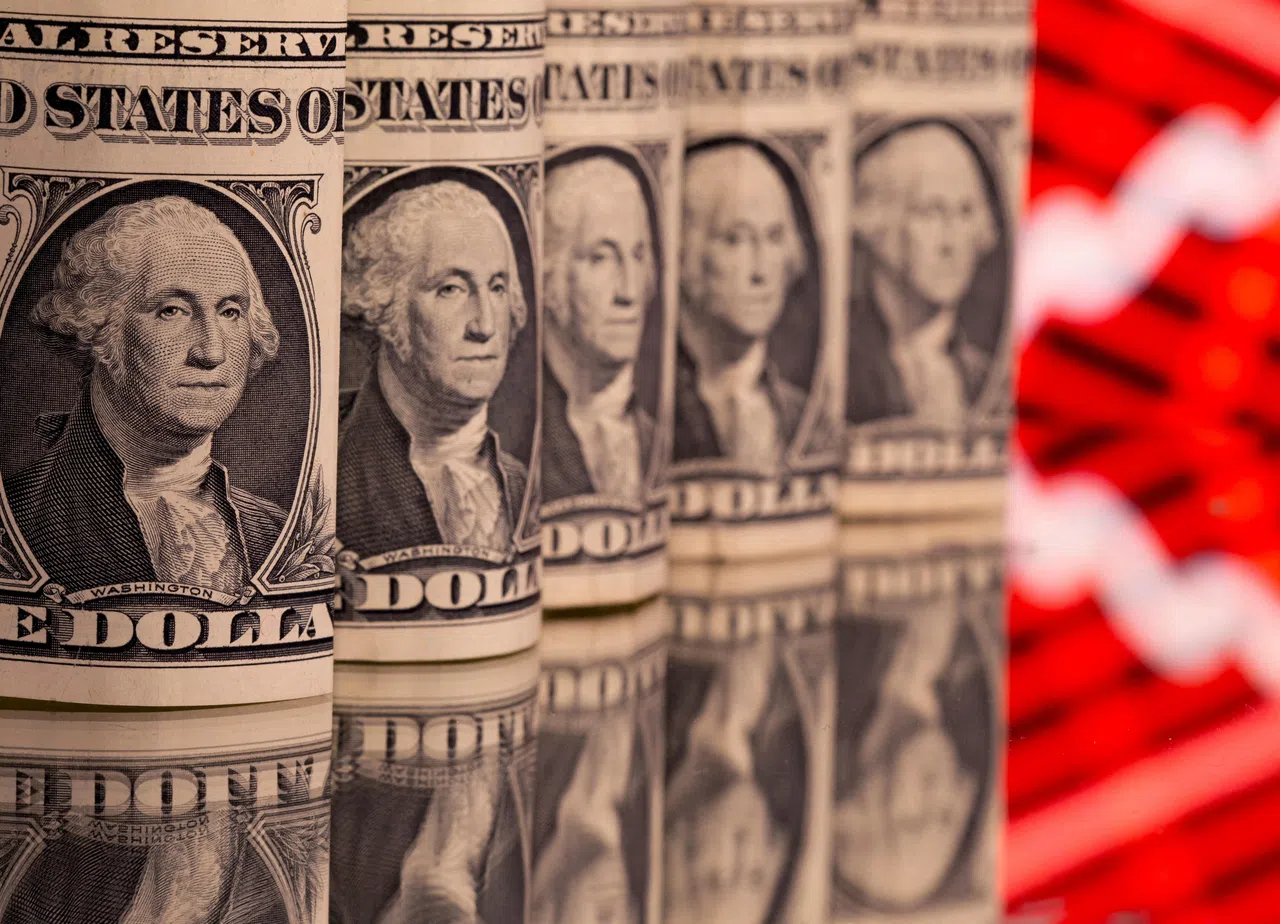RISING US yields supported the dollar on Tuesday (Jul 2), with low-yielding currencies such as Japan’s yen and China’s yuan feeling the pressure ahead of a speech by Federal Reserve chair Jerome Powell.
Benchmark 10-year Treasury yields rose nearly 14 basis points to 4.479 per cent overnight, with analysts linking the rise to expectations that Donald Trump will win the US presidency, in turn leading to higher tariffs and government borrowing.
On Tuesday, the yield on the 10-year note was down 2 basis points on the day at 4.4593 per cent.
“Trump’s better (debate) showing over (President Joe) Biden added to expectations that inflation may pick up pace, yield curves will steepen further, and that the dollar may continue to trade at a premium,” said OCBC strategist Christopher Wong.
The dollar index, which measures the US unit against six other currencies, was up 0.15 per cent at 106, with the spotlight on economic data and comments from Powell later in the session.
“There has been a tendency from Powell to be a bit more optimistic than the Federal Open Market Committee consensus on disinflation, and we think there are some downside risks for the dollar ahead of today’s speech,” said Francesco Pesole forex strategist at ING.
BT in your inbox
Start and end each day with the latest news stories and analyses delivered straight to your inbox.
As the dollar rose, the euro handed back part of a rally as the first round of France’s election turned out more or less in line with polling. The single currency was last 0.2 per cent lower at US$1.0715.
While markets await the second round of French elections during the weekend, their focus has shifted to economic data and the European Central Bank’s monetary outlook.
Eurozone inflation eased last month but a crucial services component remained stubbornly high, fuelling concern that domestic price pressures could stay at elevated levels.
ECB’s President Christine Lagarde said on Monday that the central bank needs more time to conclude that inflation is firmly on a path to 2 per cent and benign economic developments indicate that rate cuts are not urgent.
The yen hit 161.745 per dollar on Tuesday, its weakest in nearly 38 years, driven mainly by a wide gap in interest rates between the US and Japan.
Japan’s finance minister said on Tuesday authorities were vigilant to sharp currency market moves, but stopped short of giving a clear intervention warning.
Against the euro, the yen touched a lifetime low of 173.67 on Monday and was just shy of that level on Tuesday, while against the Australian dollar, the yen was near its lowest in 33 years as carry trade remained attractive.
“There is no trigger as such for yen weakness today, rather there is nothing really preventing it,” said Matt Simpson, senior market analyst at City Index.
Robust manufacturing data in China and an announcement from the central bank that it would be borrowing bonds – likely to sell them and steady falling yields, traders said – gave only the briefest fillip to the yuan on Monday.
It was last at 7.307 in offshore trade on Tuesday, within sight its June low.
Sterling neared its lowest in almost two months against a robust dollar on Tuesday, while the euro extended its modest rally over the last week.
The Australian dollar eased 0.14 per cent to US$0.66515 with traders weighing central bank minutes, which showed much discussion about whether policy was tight enough to ensure inflation would slow as desired.
Swaps markets pricing implies a one-in-three chance of a rate hike as soon as next month. REUTERS






